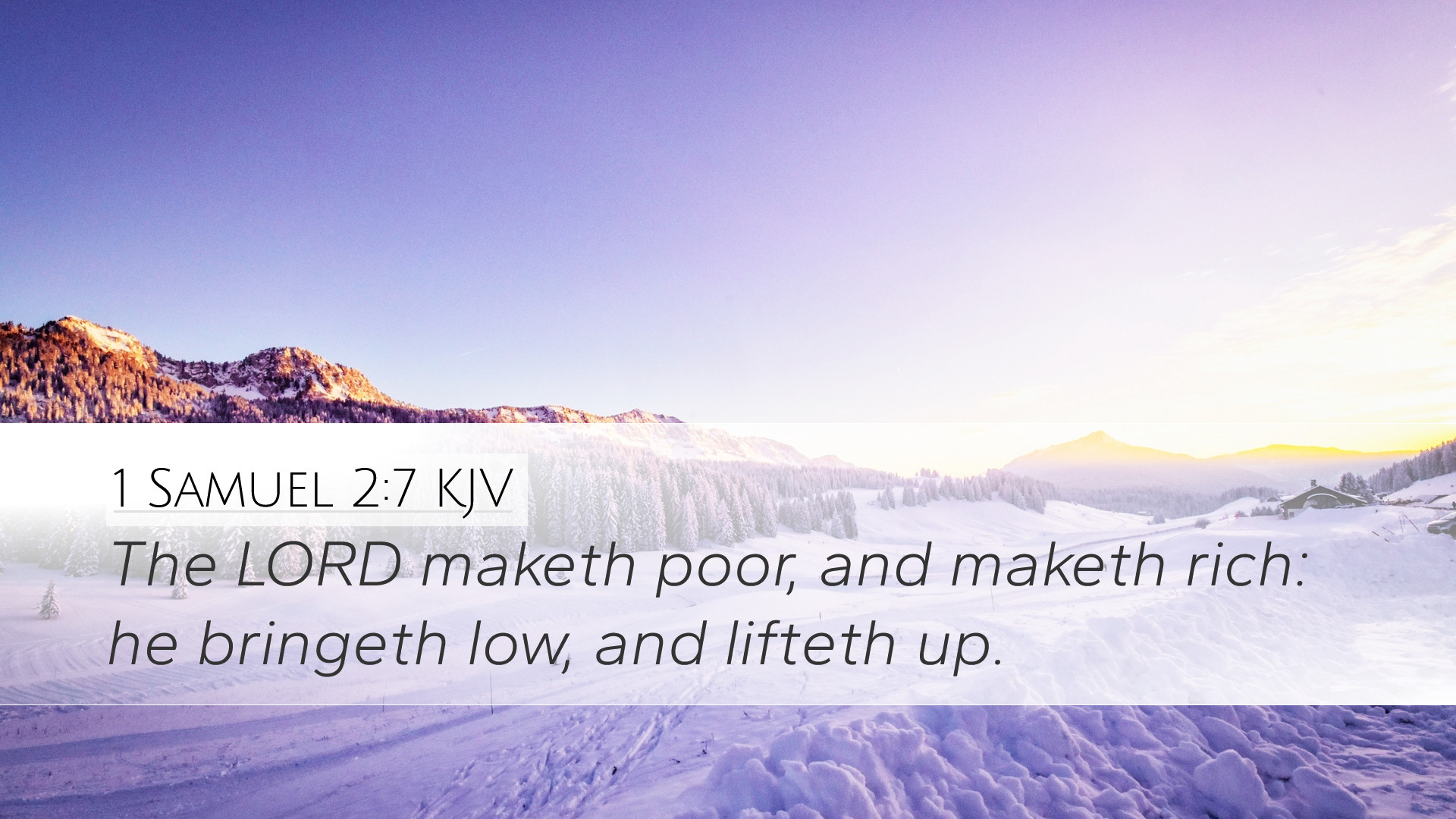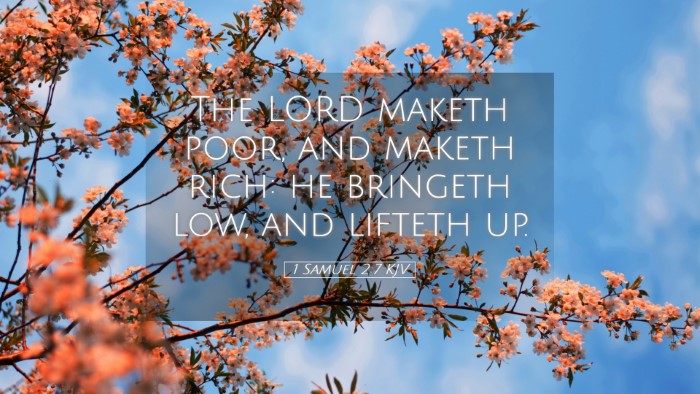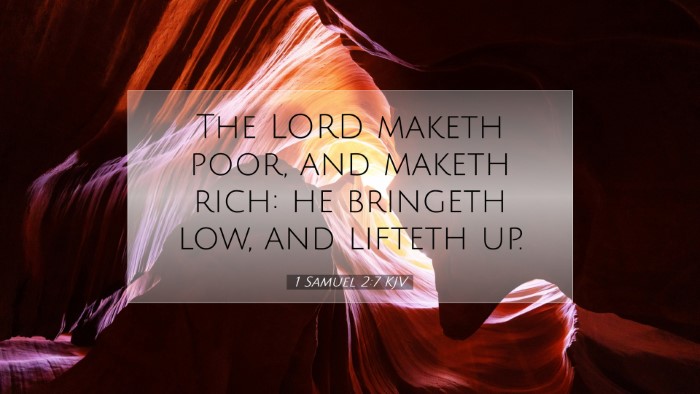Commentary on 1 Samuel 2:7
Verse Context: 1 Samuel 2:7 states, "The LORD makes poor and makes rich; He brings low and lifts up." This verse serves as a profound declaration of God’s sovereign authority over human fortunes and the moral order of the world.
Overview of the Passage
This verse, part of Hannah’s prayer, reflects the overarching themes of divine providence, the reversal of fortunes, and the moral governance of God. As Hannah extols the majesty of God after the birth of Samuel, she emphasizes that all aspects of life — wealth, status, and power — are subject to God’s will.
Insights from Public Domain Commentaries
1. Commentary by Matthew Henry
Matthew Henry interprets this verse by highlighting the sovereignty of God over all creation. He asserts that God has absolute control over human circumstances, and His decisions regarding wealth and poverty reflect His ultimate justice. Henry explains:
- Divine Control: "God makes poor and makes rich" indicates that no one can prevent God’s purposed actions in their lives. Wealth is not simply a product of human effort but also a divine allocation.
- Exaltation and Humbling: It is God who "brings low and lifts up." This means that God can elevate the humble and bring down the proud, revealing His preference for the marginalized.
Henry encourages believers to recognize God's hand in their life circumstances and to cultivate gratitude and humility, understanding that both prosperity and adversity serve divine purposes.
2. Commentary by Albert Barnes
Albert Barnes provides a doctrinal analysis of this verse, drawing readers to the theological implications of divine providence. He asserts:
- The God of Justice: Barnes stresses that God's management of wealth reflects His justice. He observes that God's methods may not always align with human expectations, but they are part of His perfect plan.
- Your Circumstances: "He brings low and lifts up" serves as a reminder that believers should not be dismayed by their current state, whether in poverty or affluence, for God's purposes are being worked out.
Barnes encourages the faithful to view their life's situation through the lens of God’s providence, urging them to trust in Him during both times of lack and abundance.
3. Commentary by Adam Clarke
Adam Clarke offers a more practical perspective on the implications of 1 Samuel 2:7. He emphasizes:
- Understanding Wealth: Clarke posits that wealth is not inherently evil, but its proper use is crucial. "Makes poor and makes rich" reminds believers of their stewardship responsibilities in managing resources.
- God’s Sovereignty in Daily Life: He highlights that these truths are not abstract doctrines but real for everyday living. God's governance applies to all societal classes, and every individual is subject to His authority.
Clarke concludes by encouraging readers to cultivate a spirit of generosity and contentment, knowing that both their wealth and poverty are under God's control.
Theological Implications
1 Samuel 2:7 delves deep into the nature of God and His relationship with humanity. The verse offers several theological implications:
- Divine Sovereignty: It affirms God's ultimate authority over creation, governing the rise and fall of nations and individuals.
- Human Response: Believers are called to respond with faith, recognizing God’s control over circumstances that seem chaotic or unjust.
- Hope for the Oppressed: This verse is especially comforting for the marginalized as it promises that God sees their struggles and has the power to elevate them in due time.
Application for Pastors and Scholars
For pastors, this verse can serve as a powerful reminder to address themes of hope and resilience in their messages. It is an encouragement to remind congregations that God is actively engaged in their daily lives, orchestrating events for good.
Scholars might engage with this text by exploring its implications for social justice, ethics, and the nature of prosperity theology. The duality of God’s actions — both lifting and lowering — can lead to rich discussions on ethical living in a world obsessed with wealth.
Conclusion
In summary, 1 Samuel 2:7 encapsulates a profound theological truth about the nature of God’s sovereignty over the human condition. By synthesizing insights from revered commentaries, we see a richer understanding of how God interacts with our lives through the mechanisms of wealth and status.
May this commentary serve to deepen the faith of those who turn to these scriptures for guidance and inspiration.


